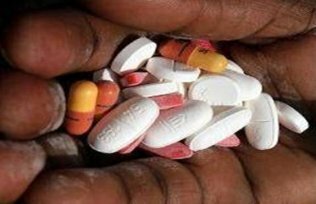copyright (c) 2011 NICHE
Site by websculptures
Sitemap
How to scale-up ART? A data and modeling study to determine the best ART strategies, with an application to South Africa
Antiretroviral therapy (ART) for HIV infection in developing countries has become a major public health intervention and has strongly influenced public health practice. The ART roll-out in sub-Saharan Africa, characterized by expanded access to treatment and voluntary counseling and testing (VCT), has likely influenced the dynamics of the HIV epidemic, but it is not yet known whether it will ultimately reduce HIV incidence. Reduced infectivity of people on ART and increased counseling and condom use will decrease the spread of HIV, but longer survival, incomplete adherence, development of resistance and increase in risk-taking behavior in response to perceptions of safety conferred by the use of ART, will result in increasing HIV transmission.
We propose to study the potential impact of the current and alternative ART strategies in KwaZulu/Natal, (KZN) South Africa, with and without additional preventive measures, on HIV epidemic dynamics. To do this, we will develop a mathematical model that addresses the above limitations, and we will link the model outcomes to costing studies and cost-effectiveness analysis. The overall aim of this research is to develop scientifically rigorous tools to evaluate treatment and prevention strategies, taking into account the intended and unintended public health consequences of the ART roll-out. Because the impact of ART and of other interventions depends upon the social environment in which they are implemented, we will model a range of possible settings in southern Africa, and study how effectiveness and cost-effectiveness depend on these social environments.
This study has been funded by the National Institute of Health (NIH) in the United States, and involves collaboration with the African Research Centre in KwaZulu Natal, Brown University (Dr. Mark Lurie) and Erasmus MC (Dr. Sake de Vlas, Dr. Roel Bakker, Dr. Helene Voeten, Prof. Dick Habbema) . The project runs from 2009 till 2013.
Related publications:
- Elimination of HIV in South Africa through Expanded Access to Antiretroviral Therapy: A Model Comparison Study
- The impact of the new WHO antiretroviral treatment guidelines on HIV epidemic dynamics and cost in South Africa
- Ageing with HIV in South-Africa
- The potential impact of RV144-like vaccines in rural South Africa: a study using the STDSIM microsimulation model
